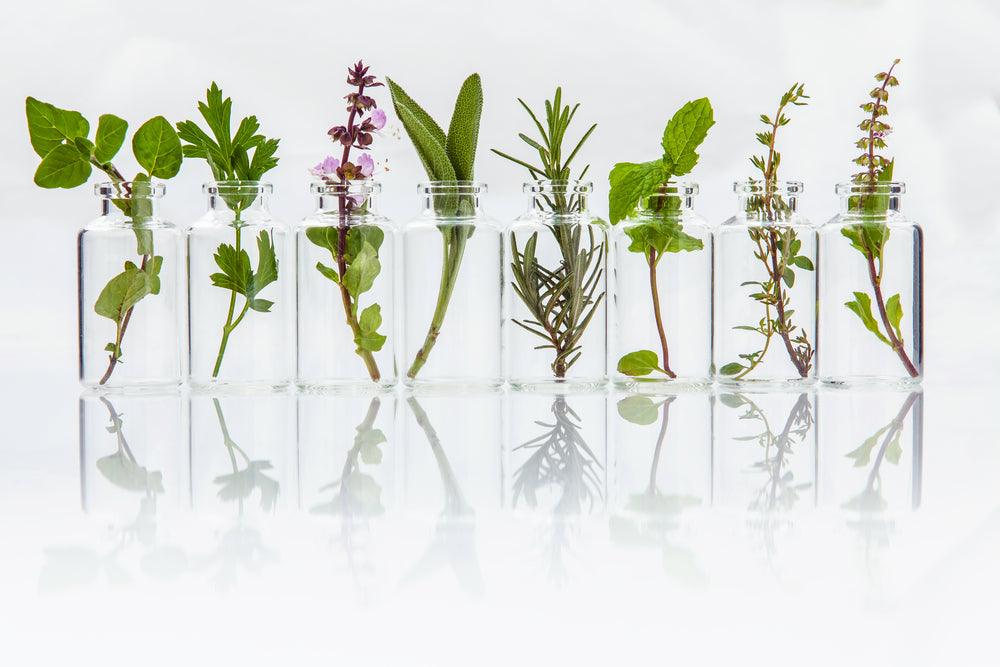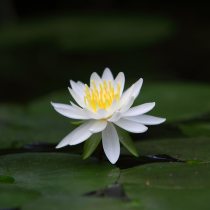Your Cart is Empty
SUBSCRIPTION BOXES ARE SOLD OUT
SUBSCRIPTION BOXES ARE SOLD OUT
Shop
Learn

25 PRACTICAL USES OF ESSENTIAL OILS
October 28, 2021
25 PRACTICAL USES OF ESSENTIAL OILS
BRIEF HISTORY OF ESSENTIAL OILS
Essential oils have been used in ancient civilizations for spiritual, medicinal, therapeutic and perfume purposes. Egyptians were known for their ability to use oils and pastes from plants for medicinal cakes and ointments. In China, the legendary Yellow Emperor, Huang Ti penned a book entitled “The Yellow Emperor’s Book of Internal Medicine,” which contained the medical usage for several essential oils. Traditional Indian medicine has been incorporating essential oils into healing ointments for over 3,000 years. In addition, French chemist, René-Maurice Gattefossé discovered the healing properties of lavender oil after applying it to burns sustained during a laboratory explosion. He later founded the science of aromatherapy in 1928, testing the properties of essential oils on treating skin infections and wounds.
THE EFFECTS OF ESSENTIAL OILS ON MOODS
In recent years, medical physicians have begun to recognize the medical benefits of essential oils. According to an article by the University of Maryland Medical Center, “Several clinical studies suggest that when oils (particularly rose, lavender, and frankincense) were used by qualified midwives, pregnant women felt less anxiety and fear, had a stronger sense of well-being and had less need for pain medications during delivery. Many women also report that peppermint oil relieves nausea and vomiting during labor.”
Bold citrus oils such as lemon, orange, and rosemary are used to uplift and invigorate while relaxing aromas like lavender and chamomile are known for their stress relieving abilities. The article by the University of Maryland Medical Center also noted that essential oils used during massage have benefits for people suffering from depression, stimulating positive emotions in the brain.
POTENTIAL RISKS OF ESSENTIAL OILS
Though generally considered safe, essential oils should only be inhaled or applied topically. Unless directed by a trained professional, essential oils should never be taken by mouth as some oils are toxic. They are flammable and shouldn’t be placed near a flame. Oils high in phenols like cinnamon sometimes irritate the skin and should be used with a carrier oil. People suffering from high blood pressure should steer clear of stimulating essential oils like rosemary. Pregnant women who suffer from seizures should not use hyssop oil. Anyone receiving chemotherapy should consult their doctor before using essential oils and women with breast or ovarian cancer should not use oils containing estrogen-like compounds such as fennel, aniseed, sage, and clary sage.
USING ESSENTIAL OILS
There are a number of ways to incorporate essential oil into your daily routine. Diffusers are a common way to distribute the scent throughout the home, while couples may enjoy giving their partners aromatherapy massages. Using essential oils during a massage benefit the recipient in a number of ways. Their skin absorbs the oils while both partners breathe in the oil.
Though essential oils can be used to support and balance the body, they can also be used in a variety of surprising ways. Below you can find the 25 practical uses for essential oils. Enjoy!
PRACTICAL USES OF ESSENTIAL OILS LIST

1. DEODORIZE YOUR HOME
If you don’t want to use commercial air fresheners, try mixing an essential oil of your choice with one part water and one part vodka. Then pour the mixture into a diffuser for a fresh-smelling home.
2. PMS
To soothe cramps during PMS, add 5 to 6 drops of rose oil to a hot bath. Rose oil has antispasmodic characteristics which help to relax muscles.
3. HEADACHE
Rub lavender, peppermint or wintergreen oil on your temples to help relax after a particularly hectic workday.
4. TO UNCLOG PORES
Use hot water and a combination of lemon, tea tree, and sweet orange oils to unclog your pores. Allow steam from a bowl of hot water to waft onto your face before gently rubbing the oil mixture into the skin then wipe oil with a clean towel.
5. UPSET STOMACH
Tangerine oil naturally neutralizes stomach acid. The next time you are suffering from an upset stomach, try adding tangerine oil to your water.
6. PROTECT YOUR PET
Rubbing a few drops of geranium oil on your pet can keep ticks from attaching to their skin.
7. TO DISINFECT CUTS AND SCRAPES
A powerful disinfectant, clove oil can be used to clean cuts and treat fungal infections such as athletes foot. Dilute clove oil in a carrier oil before applying to skin.
8. SCARE SPIDERS AND RODENTS
Spiders and rodents are repelled by the scent of peppermint. And 10-15 drops of peppermint oil to a spray bottle and spray near doors and cracks.
9. HALT HICCUPS
You can stop hiccups by adding 4 drops of peppermint oil to a shot glass full of water.
10. FRESHEN THE TRASH
Add a couple of drops of citrus essential oils like grapefruit and lemon to baking soda. Sprinkle the mixture over the bottom of your trash can.
11. GET RID OF PESKY INSECTS
Peppermint, citronella, lemongrass and rosemary oil are known to deter flying insects. Add drops of these oils around windows to deter flying insects.
12. ELIMINATE LINGERING ODOR
Add clove, cinnamon, or a citrus oil such as lemon or grapefruit oil to pots of simmering water to rid your home of lingering food odors.
13. STOP FOOT ODOR
Add a couple of drops of tea tree, geranium, basil, or lavender oil to remove lingering foot odor.
14. ELIMINATE PET ODOR
Mix 15 drops of an essential oil of your choice (we recommend lavender or lemon oil)
in a small spray bottle filled with apple cider vinegar.
15. REPLACE CARPET SPRAY
Add 10 drops of your favorite essential oil to baking soda then sprinkle the mixture onto a carpet. Let it sit for at least 20 minutes before vacuuming.
16. DISSOLVE SUBSTANCES
You can use lemon oil to dissolve substances such as wax, oil, chewing gum, or glue.
17. REMOVE PESKY BUGS
While washing bedding, add a couple of drops of eucalyptus oil to get rid of mites.
18. RELAX
Add a few drops of lavender, chamomile or bergamot oil to bath water for an ultra- relaxing bathing experience.
19. REVITALIZE YOUR OFFICE
Ylang ylang, orange, and jasmine oil are known for their uplifting qualities. Add a couple of drops to a diffuser to invigorate your office.
20. NEUTRALIZE NAUSEA
Rub ginger or nutmeg oil on the sole of the feet for an all-natural cure for nausea.
21. FOOT SOAK
Add peppermint oil and Epsom salt to warm water for a decadent foot bath.
22. BOOST YOUR IMMUNE HEALTH
Add oregano oil to the soles of the feet to give your immune system a boost.
23. CURE HAIR LOSS
Add burdock root, ginger, hops flower, lavender, rosemary, thyme, or yarrow oils mixed with a carrier oil for a natural remedy for hair loss.
24. RELIEVE FEVER
Add equal parts sage, frankincense, and eucalyptus oil to a bath to soothe a fever.
25. ALLEVIATE INSOMNIA
Add a couple of drops of chamomile and lavender oils to your pillow to enjoy a restful sleep.
What do you think about this long list of the uses of essential oils? What uses of essential oils do you currently implement into your daily life? What is your favorite oil and how do you use it?
To learn more about essential take a look at our essential oils dictionary and our essential oils list, which has more details on some of the most widely used essential oils we use in our products to help you heal.

THESE RECOMMENDED USES OF ESSENTIAL OILS ARE PROVIDED FOR INFORMATIONAL PURPOSES ONLY. THE STATEMENTS CONTAINED IN THIS ARTICLE HAVE NOT BEEN EVALUATED BY THE FOOD AND DRUG ADMINISTRATION. PLEASE CONSULT A PHYSICIAN OR MEDICAL PROFESSIONAL BEFORE STARTING ANY HEALTH, EXERCISE OR NUTRITIONAL SUPPLEMENT PROGRAM.
Subscribe
Sign up to get the latest on sales, new releases and more …


